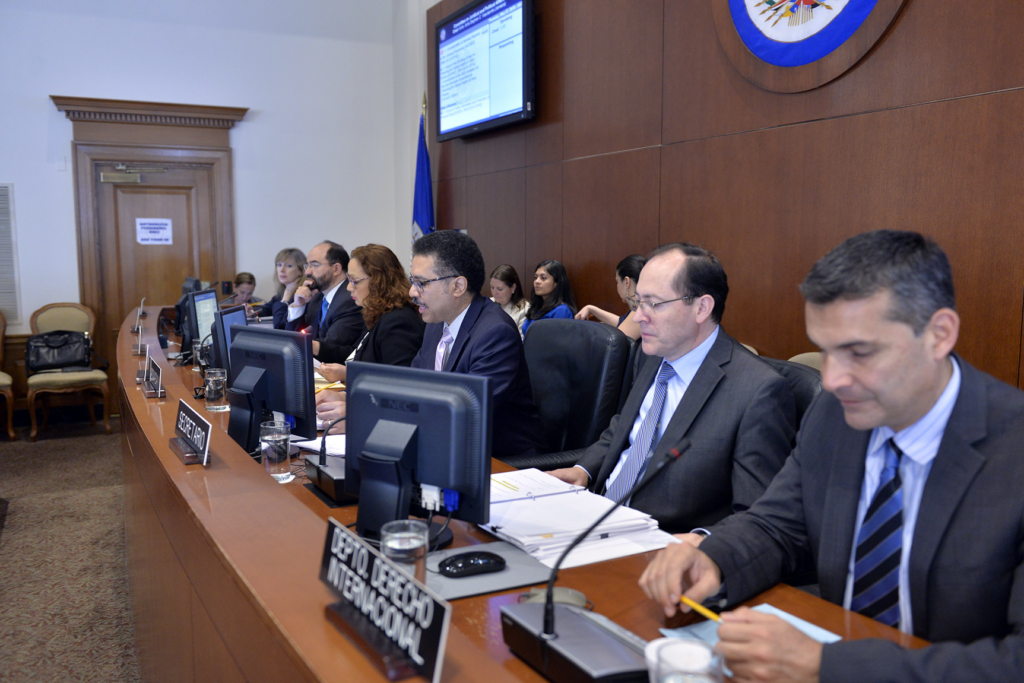Inter-American Principles on Creation, Operation, Financing, and Dissolution of Civil Society Organizations
Updated July 2025 (originally published March 2023)
The Inter-American Juridical Committee (IAJC)—a body of the Organization of American States (OAS)—adopted the Declaration of Inter-American Principles on the Legal Framework for the Creation, Operation, Financing, and Dissolution of Non-profit Civil Entities during its 102nd regular session in Rio de Janeiro. The declaration was submitted to the OAS Permanent Council for consideration by the General Assembly (GA). In 2024, the GA encouraged member states to observe these principles and use them as a guide for developing or reforming regulations governing civil society organizations.
Developed with pivotal support and technical expertise from the International Center for Not-for-Profit Law (ICNL), these principles set out shared legal standards for how civil society organizations (CSOs) should be created, governed, funded, and, if necessary, dissolved. They are grounded in international human rights law and informed by a comparative legal analysis of 35 countries.
By promoting consistency across national laws in the Americas, the principles serve as a critical advocacy tool for CSOs and their allies, helping challenge restrictive regulations, strengthen legal protections, and foster enabling environments for civic participation. Updated in 2024 and 2025, the principles reflect the region’s evolving legal landscape and a commitment to protecting civic space.
The 12 principles appear below:
Principle 1
Exercise of freedom of association
The exercise of freedom of association includes the right to participate in the creation, operation, financing, and dissolution of nonprofit civil entities.
Principle 2
Autonomy of will
Nonprofit civil entities are born and governed by the will of their founders, associates, or
members, exercised freely and autonomously.
Principle 3
Principle of legality
The life cycle of nonprofit civil entities should be governed mainly by laws adopted according to the constitutional procedure required by the State’s domestic law, in all that which is necessary and reasonable for a democratic society.
Principle 4
Registration and recognition by an independent and autonomous agency
Member states should guarantee independent and autonomous public registration services or recognition of the legal personality of civil entities and ensure that those bodies provide their services with professionalism, impartiality, and transparency, pursuant to these principles.
Principle 5
Simple and transparent registration procedures
Establishment and registration procedures should be simple, prompt, clear, non-discriminatory, and non-discretionary. The law should establish precisely the requirements and documents to be submitted for obtaining and maintaining recognition of legal personality, as well as the procedures, deadlines, and costs of that process.
Principle 6
Freedom of operation
Nonprofit civil entities may carry out their functions with a broad purpose in areas of public interest and/or for the mutual benefit of their members, with only those constraints that are permitted by international human rights instruments and without unlawful or arbitrary interference.
Principle 7
Freedom to seek, obtain, and use funding
Nonprofit civil entities are free to seek, request, obtain, and use financing for the achievement of their social aims from public and private sources, both domestic and foreign, in accordance with the generally applicable laws on tax, exchange and banking matters. Political parties are subject to a special regime regarding transparency and electoral financing.
Principle 8
Appropriate control of illicit financing
State responsibility to regulate illicit financial activities will be in accordance with the obligations established by international human rights instruments. Restrictions applied to civil nonprofit entities should be proportionate to the risk identified, evidence-based, and implemented without limiting the legitimate work of the sector.
Principle 9
Access to public financing under equal conditions and without discrimination
Civil nonprofit entities may have access to public funds through transparent, equitable and non- discriminatory systems, being subject to the general rules of accountability and responsibility of their legal representatives.
Principle 10
Special tax regime
Nonprofit civil entities should have access to tax benefits in accordance with their nonprofit nature without discrimination.
Principle 11
Proportional penalties and due process
Sanctions imposed by States on nonprofit civil entities should only be applied in limited circumstances established by law in advance in a gradual, necessary and strictly proportional manner; and be applied on reasonable, reasoned and proven grounds within a judicial process, with all the guarantees of due process.
Principle 12
Voluntary and forced dissolution
The dissolution of nonprofit civil entities, their liquidation and the disposal of their assets should follow the provisions contained in their bylaws, as expressed by the will of their members. Members should not distribute the entity’s assets among themselves. Compulsory dissolution, as a legal penalty, should be appropriate only in exceptional circumstances and in the most serious cases that entail the infringement of a legitimate interest recognized by international human rights instruments and where less restrictive measures would not be sufficient to protect such an interest.
You can download the full Declaration in English (via OAS) here or in Spanish (via OAS) here. This includes the rationale for each principle as well as the applicable international standards.
Sign up for our newsletters
Sign up
